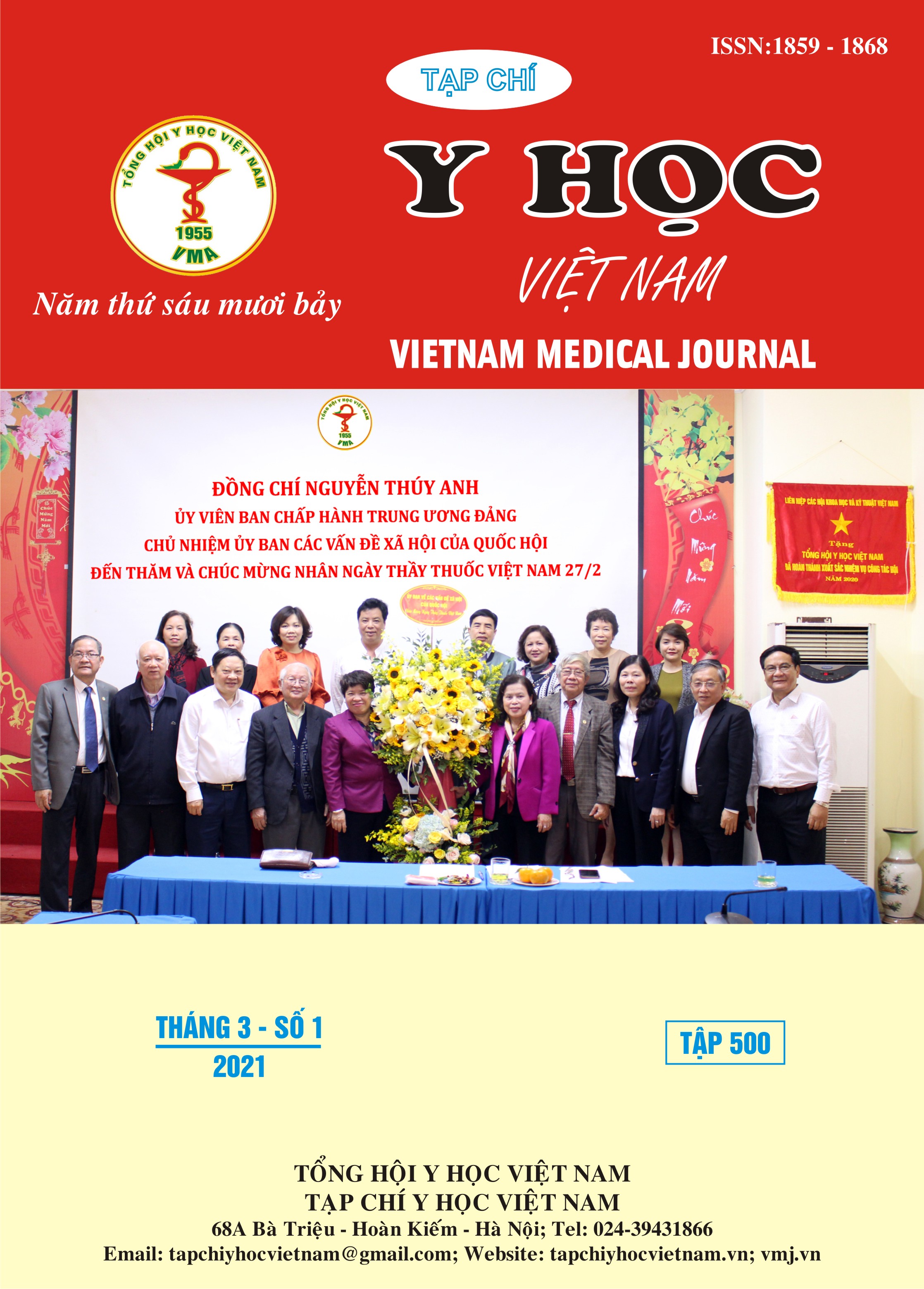ESTABLISHING THE PROCOTOL FOR DETECTING rs36211723 POLYMORPHISM OF MYBPC3 GENE FROM BLOOD SAMPLE OF HYPERTROPHIC CARDIOMYOPATHY PATIENTS
Main Article Content
Abstract
Objective: Hypertrophic cardiomyopathy is a common inherited disease, regulated by autosomal dominant genes. Mutations in the genes encoded for sarcomere proteins of the myocardial fiber are considered to be the primary genetic cause of hypertrophic cardiomyopathy. In particular, the rs36211723 polymorphism in the cardiac myosin-binding protein C gene (MYBPC3) accounts for a large proportion of the polymorphisms causing hypertrophic cardiomyopathy in Vietnamese people. Therefore, identification of rs36211723 polymorphism of Vietnamese hypertrophic cardiomyopathy patients is really necessary. Methods: total DNA extraction from venous blood samples, gene amplification by PCR, and genotype determination by Sanger sequencing were applied. Results and conclusion: An optimized protocol for detecting polymorphism rs36211723 has been established. To primary test the protocol, genotypes of a family members of 19-year-old female patient with hypertrophic cardiomyopathy were tested. Rs36211723 polymorphism of MYBPC3 gene was recorded in a female patient and her father that shown the meaning of our method in detecting this polymorphism for hypertrophic cardiomyopathy patients.
Article Details
Keywords
rs36211723, MYBPC3 gene, hypertrophic cardiomyopathy, Sanger sequencing
References
2. Semsarian, C., et al. (2015). New perspectives on the prevalence of hypertrophic cardiomyopathy.J Am Coll Cardiol,65(12): p. 1249-1254.
3. Maron, B.J., et al. (1995).Prevalence of hypertrophic cardiomyopathy in a general population of young adults. Echocardiographic analysis of 4111 subjects in the CARDIA Study. Coronary Artery Risk Development in (Young) Adults.Circulation,92 (4): p. 785-9.
4. Maron, B.J., et al. (2018). Clinical Course and Management of Hypertrophic Cardiomyopathy.N Engl J Med, 379 (7): p. 655-668.
5. Tanjore, R.R., et al.(2008). MYBPC3 gene variations in hypertrophic cardiomyopathy patients in India. Can J Cardiol, 24 (2): p. 127-30.
6. Calore, C.,et al. (2015). A founder MYBPC3 mutation results in HCM with a high risk of sudden death after the fourth decade of life.J Med Genet, 52 (5): p. 338-47.
7. Elliott, P.M., et al. (2014). 2014 ESC Guidelines on diagnosis and management of hypertrophic cardiomyopathy: the Task Force for the Diagnosis and Management of Hypertrophic Cardiomyopathy of the European Society of Cardiology (ESC).Eur Heart J, 35 (39): p. 2733-79.
8. Tran Vu, M.T., et al. (2019). Presence of Hypertrophic Cardiomyopathy Related Gene Mutations and Clinical Manifestations in Vietnamese Patients With Hypertrophic Cardiomyopathy.Circ J, 83 (9): p. 1908-1916.


